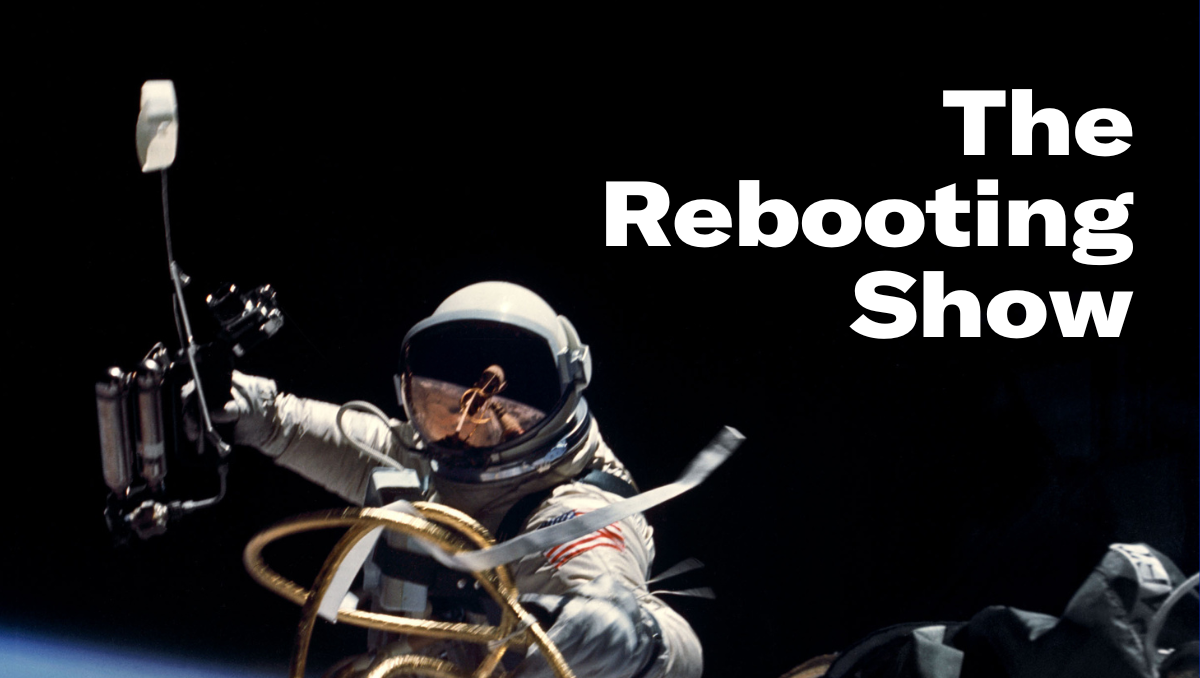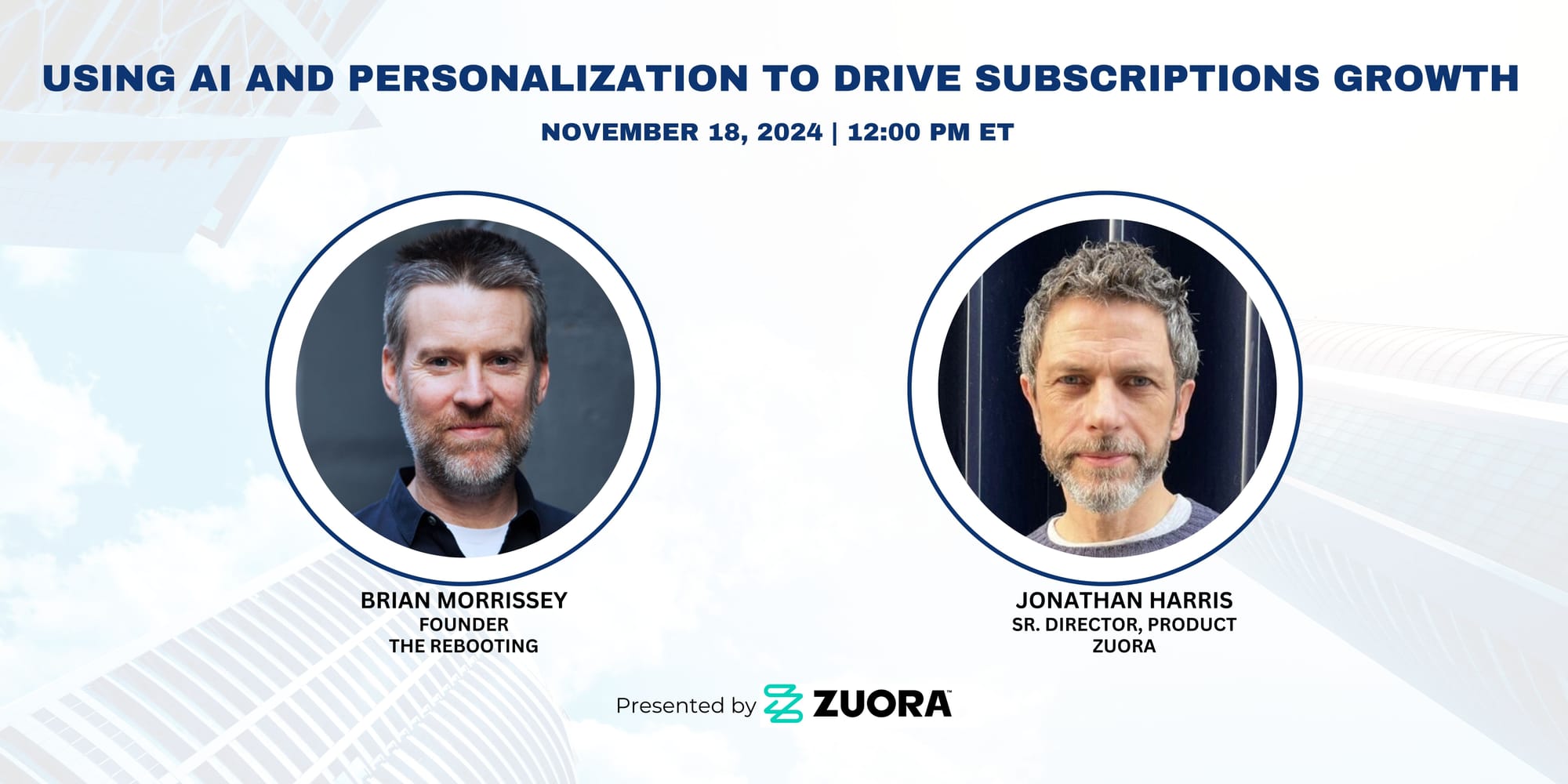The new search wars
Activate's Michael Wolf on the profound changes coming to search

On The Rebooting Show, I spoke with Activate’s Michael Wolff, a longtime media industry consultant, to understand the direction of the media industry, in particular the impact of search’s new era.
First, a reminder of an online forum The Rebooting is holding today in collaboration with Nota.
The AI opportunity for publishers
The discussion around AI and the news business typically focuses on the downsides and fear. But AI offers publishers the ability to streamline their processes in order to devote resources to differentiated and impactful journalism. Today at noonET, I’ll be joined by Nota’s Josh Brandau to discuss how publishers can apply AI to their internal processes to do more with less..
We’ll cover:
- How to streamline operations while enhancing the reader experience
- Focusing resources on impactful journalism
- How publishers are negotiating with AI companies for payments – and what it means for those who aren’t the biggest players
Join us today at noon. If you cant make it, registrants will be sent a link to the replay. Thanks to Nota for its support.
The new search wars
The dwindling of social referrals was a blow to publishers, but the prospects of a vastly changed search ecosystem is existential.
AI-powered search engines have clawed a foothold in the critical search market that controls distribution on the open web. Media management consulting firm Activate estimates 15 million people are using these answer engines rather than Google, which is adding AI summarization to its results. By 2028, Activate expects that to rise to 36 million.
The open question is whether publishers can stem this tide. While some publishers have cut deals with AI companies, others have looked to the legal system. Perplexity faces several lawsuits from publishers, most recently from Dow Jones.
The legal battle is uncertain. A federal court recently ruled against publishers arguing ChatGPT maker OpenAI violated copyrights by scraping publisher content. Wolf expects publishers to continue their fights.
“They've learned the lessons of what happened with Google,” he said on this week’s episode of The Rebooting Show.
Activate sees generative AI currently able to handle about 40% of all searches. This first wave has focused on the traditional search engine role of parsing open web content, particularly text. Wolf sees more content moving behind paywalls or being gated to require authentication. That will fundamentally change the nature of digital media.
It will also create leverage for publishers in licensing deals with AI companies. Long term, Wolf expects AI engines to move into an agentic phase that will see them handle transactions that used to require visiting several sites.
The most precarious position in publishing at the moment is reliance on text content, particularly if it is freely available and evergreen content. Activate sees the pressure from generative AI leading publishers to diversify into multimedia content, rely more on paywalls and registration walls, shift more emphasis on driving commerce and focus on real-time information.
Other topics we discussed:
- Social video growth is slowing. Quick videos have had a great run. Average consumption has gone from 20 minutes per day to 52 minutes this year. Wolf sees that slowing, with just 2% growth next year. That reflects an overall flattening of consumption patterns for video, where streaming’s continued growth will come from cannibalizing traditional TV rather than eating share from other media formats. In streaming, Wolf sees free streaming services outperforming paid.
- Events have roared back. The pandemic has proven a blip when it comes to the human need to connect with other humans. All manner of live events, from B2B tradeshows to concerts to sporting events, have roared back. Wolf doesn’t see that changing. "People don't just go to Taylor Swift because they want to hear her music,” he said. “They want to be around other people that are Swifties."
- Podcasting is a hits business. Coming off what was billed as the podcast election, I expect we’ll see another round of talk that podcasting has truly arrived. Activate forecasts podcast listeners to grow from 117 million Americans today to 135 million in 2028. Ad spending will continue to catch up, growing at a faster clip from $2.4 billion in 2024 to $3.1 billion in 2028, more than double the growth rate of listeners. Activate’s analysis shows a market that operates with an extreme power law: Of the 4.2 million podcasts, the top 25 podcasts account for half of listening.
Listen on Apple | Spotify | other podcast platforms

One common thread in my conversation with Michael is that more publishers will rely on subscriptions in the years ahead. There have been notable success cases – the New York Times now has 11 million paying subscribers – but challenges remain with high acquisition costs, churn spirals and subscription fatigue.
On Monday, November 18, I’ll be joined by Zuora senior director of product Jonathan Harris to discuss the evolution of paywalls to become more personalized. In this Online Forum, we will focus on the tactics publishers can use to drive sustainable subscriptions growth, including:
- AI-driven experimentation
- Aligning offers and payment terms with customer needs
- Best practices for targeted offers to drive acquisition and retention
- Bundling strategies tied to audience segmentation
- Using predictive analytics to mitigate churn
Join us next week for this interactive discussion. If you cannot make it, registrants will receive a link to a replay of the online forum.
Thanks for reading. Send me a note with feedback by hitting reply.




